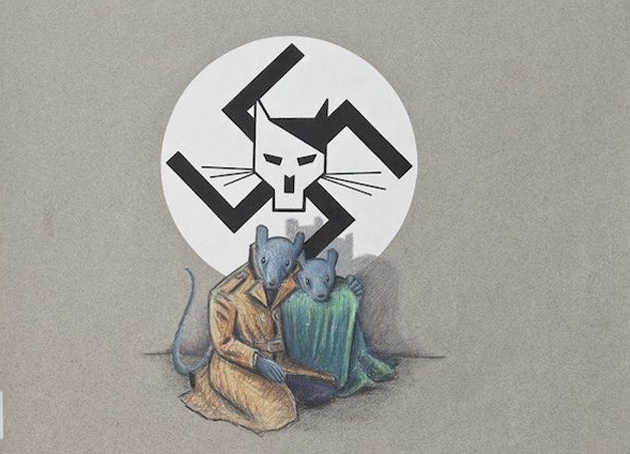
“Art Spiegelman Faces Controversy Head-On”

**Art Spiegelman: Exploring Boundaries Through Comics and Controversy**
Art Spiegelman, the Pulitzer Prize-winning creator behind *Maus*, remains one of the most influential and thought-provoking voices in the world of comics. His ability to merge raw storytelling with searing visuals has not only elevated graphic novels to literary significance but also challenged societal norms and historical narratives. With his life and work now explored in the upcoming documentary *Art Spiegelman: Disaster Is My Muse* (2024), directed by Molly Bernstein and Philip Dolin, Spiegelman’s legacy continues to ignite discussion about art as a medium for truth, satire, and resistance.
### The Power of *Maus*: Transforming Trauma Through Comics
First published in 1986, *Maus* portrays the harrowing experiences of Spiegelman’s father, Vladek, a Polish Jew who survived Auschwitz, through anthropomorphic characters: Jews as mice, Nazis as cats, and Poles as pigs. This bold stylistic choice, combined with its raw narrative, redefined what comics could achieve, giving voice to stories often muted in traditional literature.
Yet, *Maus* nearly never saw the light of day. Rejected by publishers who deemed a comic about the Holocaust either too audacious or too trivial, it was Pantheon Books that finally took the leap. The gamble paid off. *Maus* became the first graphic novel to win a Pulitzer Prize, cementing the genre’s legitimacy as a form of serious literature.
However, Spiegelman’s journey with *Maus* was not without contention. Upon reaching the bestseller list, major outlets like *The New York Times* categorized it as fiction, a misstep Spiegelman passionately disputed. For him, *Maus* was not a fictional tale but a meticulously researched account of a nightmarish reality. This misclassification underscored the broader struggle of comics gaining respect as a medium for conveying complex, non-fiction narratives.
### *Disaster Is My Muse*: The Documentary
The documentary *Art Spiegelman: Disaster Is My Muse* delves into Spiegelman’s creative process and the profound personal toll of shaping his father’s testimony into a timeless piece of art. Capturing Spiegelman’s wit, candor, and ongoing battle with the shadow of *Maus*, the film celebrates his lasting impact on comics and broader culture.
Spiegelman himself acknowledges the weight of this legacy: “I feel there’s a 5,000-pound mouse breathing down my neck,” he quips in the film. While *Maus* remains his magnum opus, it’s merely one piece of his creative oeuvre. From his irreverent *Garbage Pail Kids* trading cards to politically charged *New Yorker* covers, his ability to unsettle and provoke discussion has always been central to his identity as an artist.
### Beyond *Maus*: Satire, Social Commentary, and Controversy
Spiegelman’s sharp commentary extends beyond Holocaust history. Over the years, his covers for *The New Yorker* have sparked widespread debate. For Valentine’s Day in 1993, Spiegelman depicted a Hasidic Jew sharing a kiss with a Black woman, a visual plea for unity amidst racial and religious tension in Brooklyn. The illustration, while hopeful in tone, was met with a polarized response.
Similarly, in 1999, following the police shooting of Amadou Diallo, Spiegelman drew a pointed illustration of an officer firing at silhouette targets — a biting critique of systemic racial violence. The image, like much of Spiegelman’s work, invited both praise for its unflinching honesty and criticism for being “irresponsible” by some, including New York Police Department officials at the time.
These moments demonstrate Spiegelman’s ability to wield satire to expose uncomfortable truths. Whether exploring cultural hypocrisy, racial injustice, or post-9/11 grief in works like *In the Shadow of No Towers*, Spiegelman remains a vital figure in the intersection of art and activism.
### Wrestling with Complexity: The Next Chapter
True to his defiant spirit, Spiegelman shows no signs of steering clear of controversy. In *Disaster Is My Muse*, he reveals plans for a new project centered on Gaza, a collaboration with comics journalist Joe Sacco. Describing the endeavor as a “wrestling match” within himself, Spiegelman acknowledges the potential fallout of tackling such a polarizing subject.
“My superego says, ‘You must do this if you’re going to live with yourself,’ and my id says, ‘Who wants the grief [of] being canceled by everyone on the planet?’” Spiegelman remarked during the film’s Q&A at the DOC NYC festival. His hesitance speaks volumes about the fraught nature of political art but also highlights his enduring commitment to amplifying stories that mainstream media might ignore.
### The Legacy of Spiegelman’s Vision
Spiegelman’s mastery lies in his ability to elevate sequential art into